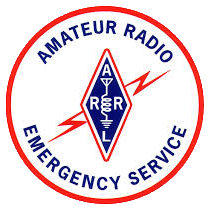September is National Preparedness month, and we'll continue our discussion of preparedness. It is fitting we cover the topic as a group, but even more so at home with your family.
Recent discussions have included a variety of people volunteering information about their preparation efforts (or lack of). The most recent West Georgia Amateur Radio Society (WGARS) featured a discussion between Sierra (K4SBE) and John (WD8LQT) regarding her deployments to disaster areas. That discussion focused on catastrophic events where, quite frankly, there is little any of us could do beyond wait for help (i.e. houses destroyed, infrastructure inoperable, etc). Probably the best advice for these types of events, especially if we know they are coming, is to wear a full set of clothes, even when going to sleep - so if something does happen you have some basic personal protection from the elements! We hope to have a video of that discussion available soon.
However, there are events that will not be quite so catastrophic as Sierra has seen, where preparation can do us some good; particularly in West Georgia, where the typical events will be weather related. It's rare that a large hurricane survives this far West and/or North of most landfalls, but that doesn't mean we won't get heavy rains, severe storms, and tornadoes that can still cause significant damage. We see severe weather of our own, but seldom is there widespread destruction.
So the good news is the probability of widespread destruction is low (but not zero). Nonetheless, there can (and will) be an interruption of services, including electricity, water, food, fuel, and other critical needs. Be sure you have a supply of these things and treat them like gold. You don't know how long you'll be without some critical infrastructure, so make what you do have last as long as practical.
So we're back to ensuring we have identified risks and have a plan which includes having supplies that will survive a power outage, flooding, and/or temperature extremes at least for a short while. Only if all of this has been done will it even be possible to provide assistance to your neighbors and community.
In a 2005 study Carroll County was the sixth most likely county in Georgia to experience some form of severe event, which have historically been weather related. We need to think about other potential risks as well, as emergencies, by definition, are unplanned events. That being said, most all emergencies require the same basic supplies, and usually require similar responses.
One exceptional situation would be if the emergency event requires evacuation rather than sheltering in place. While families would ordinarily make their way home with oncoming severe weather, an emergency requiring evacuation could result in family members evacuating to different places. In some cases family members may need to shelter in place away from home. Because of these situations, it is important that family members all operate off of the same plan, minimizing the understandable concern over a "missing" family member.
FEMA, GEMA, the Red cross, and other entities all provide useful information to assist in planning. Here's a checklist and tool kit FEMA provides to assist in the preparation process. Not surprisingly, many of the items in the previously mentioned check list came up during the recent WGARS meeting discussion.
We'll cover other aspects of preparing in future nets, but I would ask tonight, if anyone has suggestions for other resources to assist us in preparation? Has anyone ever resided in an actual disaster when the incident occurred, and what did you learn from it?




